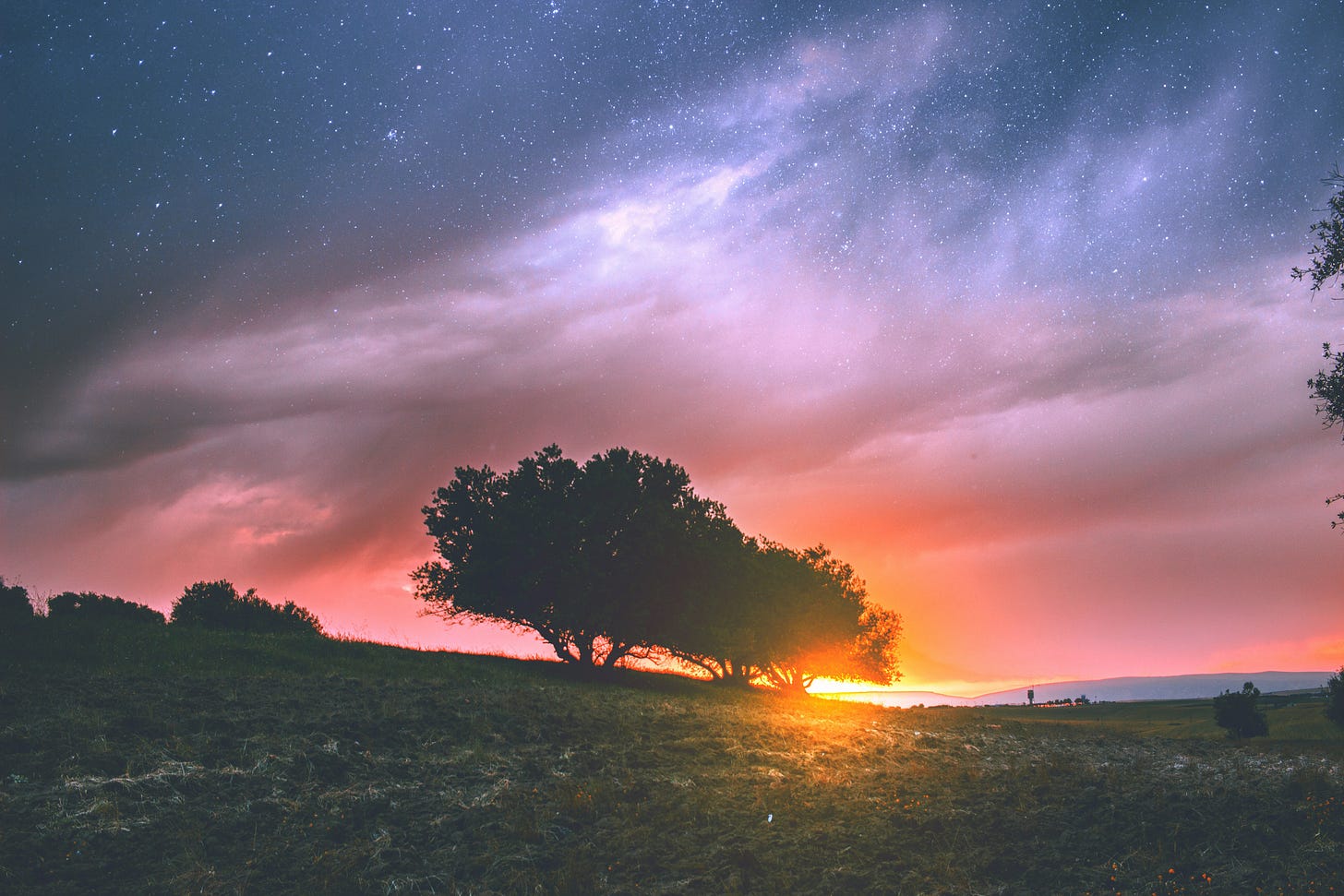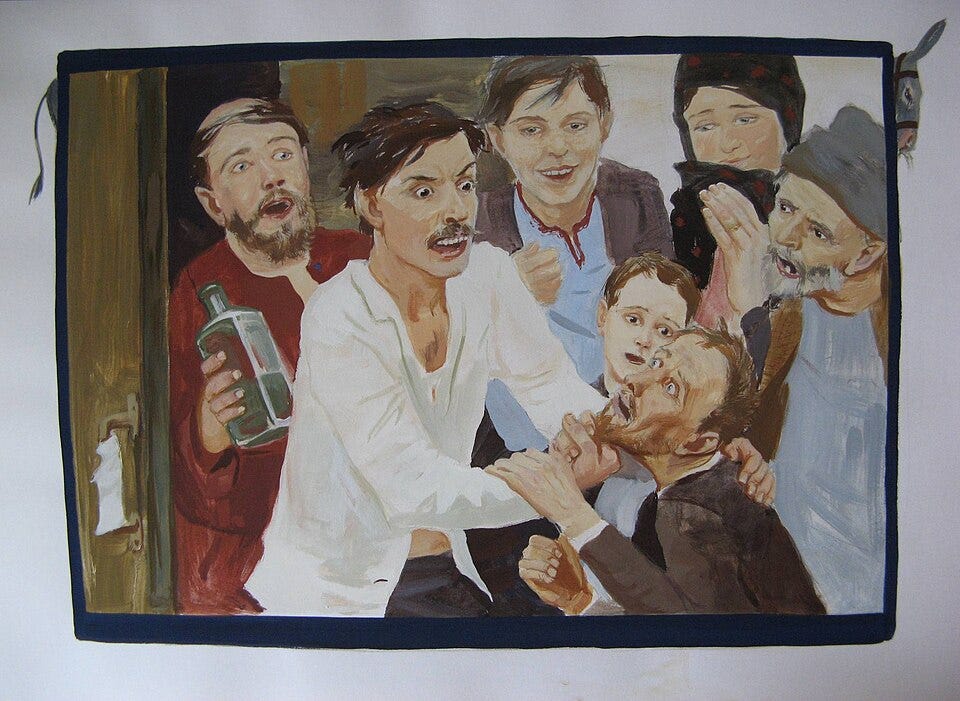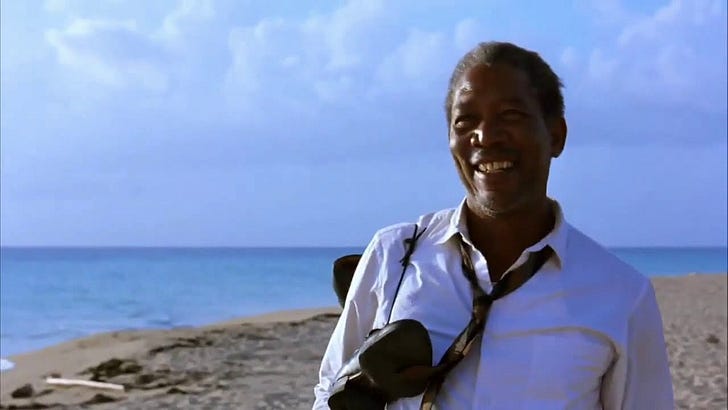One needn’t look hard to find evidence of the pervasive nature of human suffering. Armed conflicts, political violence, food insecurity, abuses of human rights, and disease affect millions. Many people struggle to survive physically, let alone flourish emotionally or spiritually.
And within our own lives, we each fight our own battles, seen and unseen.
Amid all that suffering, one thing seems clear: We have choices about how to respond. We may choose the path of indifference, seeking only to maximize our own comfort while ignoring the pain of others. We may throw our hands up in despair and spiral deeper and deeper into the idea that life is meaningless. We may become increasingly risk averse, prioritizing the security of what we have far above the possibility of what might be in the future.
Or we may choose the path of hope, the path of beauty and adventure.
As Pope Benedict XVI writes in Spe Salvi, his 2007 encyclical on Christian hope:
[It is] hope that gives us the courage to place ourselves on the side of good even in seemingly hopeless situations, aware that, as far as the external course of history is concerned, the power of sin will continue to be a terrible presence ...
We can try to limit suffering, to fight against it, but we cannot eliminate it. It is when we attempt to avoid suffering by withdrawing from anything that might involve hurt, when we try to spare ourselves the effort and pain of pursuing truth, love, and goodness, that we drift into a life of emptiness, in which there may be almost no pain, but the dark sensation of meaninglessness and abandonment is all the greater.
There’s a certain solidarity, many have noted, that comes with human suffering. Through our suffering, we become united with others who suffer and others who have suffered. And the awareness of common experience that comes with that can break through the claustrophobia and isolation that may accompany the crucibles of our lives.
In that sense, suffering can bind us together and build our sense of community. It’s similar to how C. S. Lewis writes about friendship in The Four Loves: ““Friendship … is born at the moment when one man says to another ‘What! You too?’”
And those bonds, that solidarity, go hand in hand with our resilience. The communities and friendships we form—often through our shared trials—can become enduring sources of strength, wellsprings of hope that remind us of what once was and what in the future might be.

One relatively well-developed idea in the social sciences is that we can learn from our experiences, yet it can be helpful to be intentional about our reflections, our observations, and the lessons we take away. Otherwise, we might not learn at all or even learn the wrong lessons from our experiences.
I recently finished re-reading The Brothers Karamazov, Fyodor Dostoevsky’s masterpiece. I read it for the first time some 28 years ago, and now that I’m a solidly middle-aged man with a far broader range of human experience, I found it to be about so much more than I thought it was when I was younger.
It’s a novel that somehow touches upon the biggest parts of life and death, good and evil, redemption and suffering, and so much more. Focusing in on this idea of intentional and thoughtful reflection following a tragedy, however, I find myself continuing to think about the story of Ilyusha at the novel’s conclusion.
(If you haven’t read The Brothers Karamazov, what follows is only a tiny spoiler. Reading what I share below truly will detract nothing from your experience.)
Resilience from the Conscience of Childhood
Ilyusha Snegirev is a young Russian boy, likely about nine years old. His poor family struggles with debt, illness, and humiliation at the hands of Dmitri “Mitya” Karamazov.

Ilyusha lashes out at school, stabbing a classmate with a penknife, and when a well-intentioned young adult first attempts to help him, he bites the man’s finger down to the bone. He does so because that man is Alexei “Alyosha” Karamazov, the younger brother of Dimitri, who had humiliated his father.
Later, Ilyusha himself falls ill. His health deteriorates rapidly. Alyosha continues to help him and his family. Alyosha even rallies Ilyusha’s classmates, including the one whom he stabbed, to visit and comfort him as he suffers.
Despite all efforts, medical and otherwise, Ilyusha dies.
The story of Ilyusha at first may seem to readers to be a bit of a distraction from the main story. Yet it’s certainly not, and in the final scene of the novel, the story illumines a truth about childhood, community, and redemptive love.
Here’s what happens.
Following a raw, emotional funeral and burial service, Alyosha walks silently with Ilyusha’s classmates from the cemetery to the post-funeral reception. They stop along the way at a large stone, the stone where Ilyusha had wanted to be buried, not knowing that a wealthy woman in town would purchase a burial plot near the church. The memories of the boy and the injustices and suffering he endured rush back to Alyosha, and he says:
Boys, there’s something I’d like to tell you here, by this stone.
Boys, you and I will have to part quite soon … So let us agree, here by this stone, that we shall never forget, first, Ilyusha, and second, one another. And whatever happens to us later in life, even if we do not meet again for the next twenty years, let us always remember this day when we buried the poor little boy whom we previously pelted with stones—remember, by that bridge?—and to whom, later, we all be came so attached. He was a nice, kind, brave boy, very conscious of his father’s dignity and very sensitive to the cruel insults showered on his father. And it was against those insults that he revolted. And so let us, each one of us, remember him as long as we live. And whether you are absorbed in the most important pursuits, reaching out for the highest honors, or struck down by the cruelest griefs, always remember how good it felt when we were here together, united by a good and decent feeling, which made us, while we all loved this boy, better people, probably, than we would otherwise have been.
Is there not a strength that comes from the remembering those times when adversity bound us closer to each other and how it made us think and act with more virtue?
Alyosha continues:
… I want you to understand, then, that there is nothing nobler, stronger, healthier, and more helpful in life than a good remembrance, particularly a remembrance from our childhood, when we still lived in our parents’ house … And even if we have only one such memory, it is possible that it will be enough to save us some day. Perhaps some of us will even turn evil one day; perhaps we will be unable to resist wicked temptations, will sneer at other people’s tears … But bad and wicked though we may become—which God forbid should happen to us—whenever we remember Ilyusha, how he died, how we loved him, how united we all were by this big stone, the cruelest and most sarcastic of us, if that is what he has become, will still never dare, deep inside, to laugh at the good, kind boy he was at this moment! More than that—perhaps this memory will protect him from succumbing to the temptation to commit a mortal sin and he will think better of it, saying to himself: “Yes, there was a moment when I was good and kind and brave!”
… Let us first of all be kind and then honest, and finally let us never forget one another. Let me give you my word that, for my part, I will never forget any of you. Even in thirty years, I will remember each face that is turned toward me at this second … And the one who will unite us all in this noble feeling, the one whom we shall and are determined always to remember is our sweet little Ilyusha, the boy whom we shall cherish forever and ever! So let us never forget him, let us always treasure his memory in our hearts, now and always!
… We shall remember his face and his dress, his poor little boots, and his little coffin; and also, his unhappy, sinful father, in defense of whom Ilyusha so bravely challenged his whole class!
… You know, boys … you needn’t be afraid of life! Life is so good when you do something that is good and just.”
Is there not a redemptive power in love and friendship and community, something forceful about the memories of how we perhaps considered each other and ourselves amid our worst moments?
May we never lose hope in the wild adventure of life.
And if we come close, may we reach back in our minds for those moments of certainty, those moments when the world was filled with beauty and possibility.
Because it was—and it is.
Please note: The opinions and views expressed here belong solely to the author and do not necessarily reflect those of the Department of Defense (DoD) or its components. Any mention of commercial products or services does not imply DoD endorsement. Additionally, the presence of external hyperlinks does not signify DoD approval of the linked websites or their content, products, or services.
For a related set of thoughts, see:
Learn more about my forthcoming book:




Yes, there is definitely a strength that comes from remembering those times when adversity bound us closer to each other and how it made us think and act with more virtue.
Right away I recall our families, neighborhoods, communities, states, country and world after 9/11. People really came together with compassion, neighbors helped each other, strangers reached out in kindness, and the whole country felt united. You’d see flags everywhere, hear the anthem sung with more meaning, and feel that shared resilience. It showed how adversity can draw out both unity and compassion.
Love this post and reminder! I look forward to diving into this novel - thanks so much for the suggestion!
Thanks for sharing, sir. I like the quote from Pope Benedict; it reminds me of someone I know who never had the courage to date since they didn't want to possibly go through the pain of a breakup. They've been single their whole life. Sometimes the pain is worth it ala the whole "Better to have loved and lost ... " Will check out the book someday, I hope.